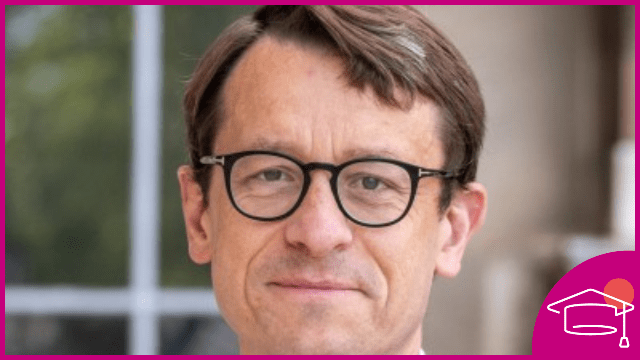Philippe Bertoux (E93): “To be a diplomat is to stay curious, to listen, and to look at the world with a constructive mindset.”
[This translation was automatically generated]
With a career combining humanism, rigour and commitment to the common good, Philippe Bertoux (E93), French Ambassador to the Republic of Korea, embodies a generation of ESSEC graduates who chose to put their skills at the service of the State and international dialogue. Now posted in South Korea, he continues to represent France with the conviction that modern diplomacy relies as much on realism as on the pursuit of solutions.
A career devoted to public service and international dialogue
A graduate of ESSEC, Philippe Bertoux (E93) initially envisaged a career in the private sector before turning to diplomacy. After several years immersed in the variety and energy of student life in Cergy, he chose to attend Sciences Po Paris and later joined the Ministry for Europe and Foreign Affairs: “I’m very glad I went to ESSEC. It’s a school that gave me real intellectual agility and great freedom of mind. These are two essential qualities for a diplomat.”
Now posted in South Korea, he represents France in a diplomatic mission that combines analysis, mediation and the management of international crises.
A vocation born from a love of ideas and the humanities
At ESSEC, his interest in the humanities quickly emerged: “I have always been drawn to literature and intellectual debate. At one point, I even considered working in publishing.”
During his studies, he condensed his schedule into two and a half days a week in order to take Modern Literature courses at the Sorbonne, combining economics, law and humanities: “This double life nourished me intellectually. It was probably at that moment that the seed of a career in public service was planted.”
Memories of a school with a free spirit
He fondly recalls his student days in Cergy, filled with camaraderie and creativity: “La Nuit de l’ESSEC was management in real life! Running the bars, organising the event, handling the unexpected — we were already learning leadership without even realising it.”
But what he remembers most is this “school that was different, not stuck in a mould”, a pioneer in its interdisciplinary approach: “ESSEC already offered a rare openness to the humanities and social sciences. You could endlessly combine subjects — it was like a Rubik’s Cube degree!”
Diplomacy: rigour, listening and agility
His career has taken him to several countries and across a wide range of fields: security, development, bilateral relations and cultural cooperation. “It’s a demanding job that requires a great deal of energy, curiosity, genuine listening skills and sound decision-making. Balancing family life isn’t always easy, but it brings a unique intercultural richness.”
Each posting is chosen through a process called “transparency”, where diplomats express their preferences: “It’s a fair system that requires flexibility and a good understanding of the ministry’s priorities.”
His take on modern diplomacy? “Today, you need to be able to address very different audiences — from policymakers to citizens — and through a variety of channels, from institutional communication to social media.”
The ESSEC spirit: an asset in serving the world
While he acknowledges the rigour of the training, Philippe Bertoux (E93) especially highlights the intellectual freedom he found there: “Even back then, ESSEC had a challenger and innovative spirit. Students knew how to think outside the box, take risks, and explore other disciplines. This curiosity and openness still inspire and guide me today.”
He sees in ESSEC’s teaching approach a natural affinity with the qualities needed in diplomacy: “A good diplomat must listen, understand and synthesise — exactly what ESSEC fosters: the ability to bridge management, law and the humanities, and the perspective needed for strategic decision-making.”
A message for the new generation
To students and young graduates aspiring to diplomacy, he offers a simple but vital piece of advice: “Cultivate your intellectual curiosity — open as many doors as you can. The world is changing fast: stay agile, humble and attentive.”
And he adds: “This profession is demanding, but it’s an incredible privilege. You’ll see the world from every angle, and you’ll play your part in building dialogue between peoples — something that’s more essential today than ever.”

Comments0
Please log in to see or add a comment
Suggested Articles



